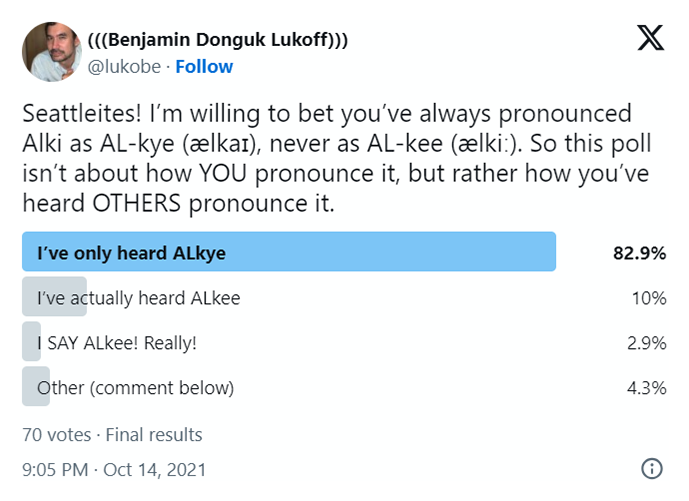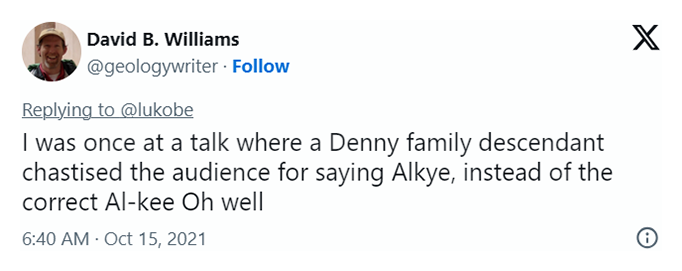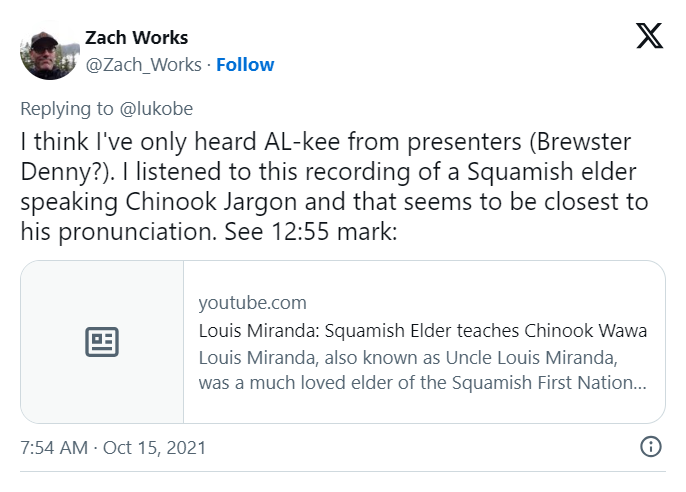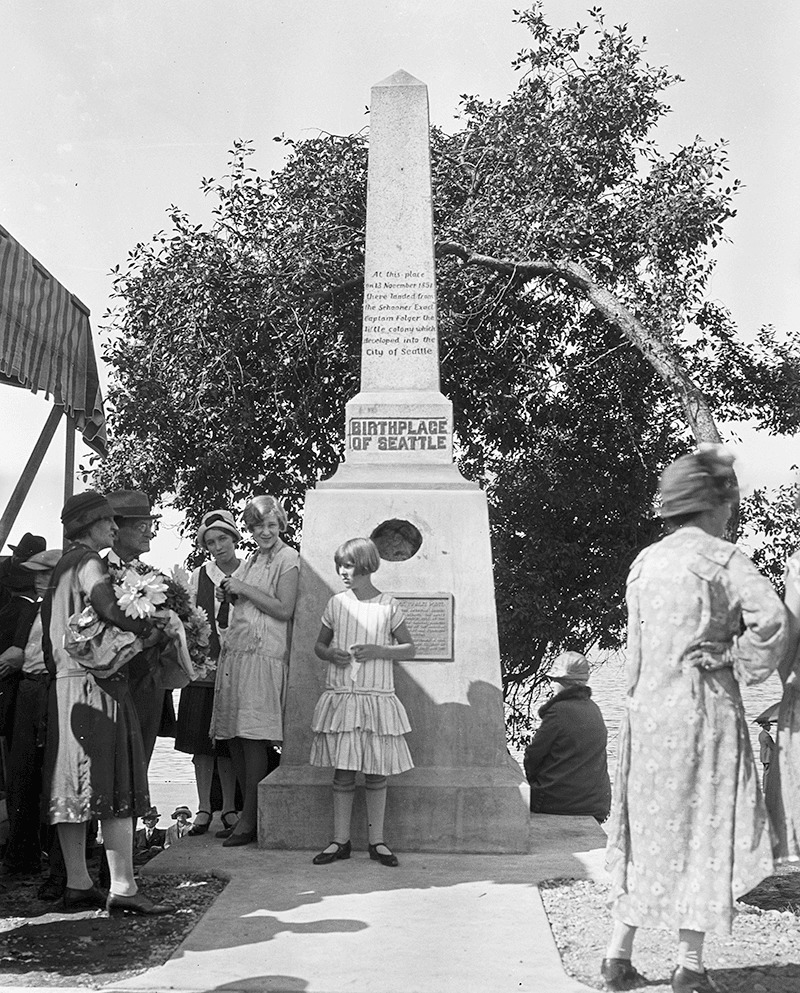The settlement at Alki Point established by the Denny Party in 1851 was originally named New York. By a process that is not entirely clear, the name became New York–Alki, and then just Alki. Alki means ‘by and by’ or ‘someday’ in Chinook Jargon, the implication being that the settlement might rival New York… someday. Charles C. Terry officially applied the Alki name to the town plat he filed in 1853, and the point, street, and neighborhood were all named after it.
In the introduction to her 1937 book, Pig-Tail Days in Old Seattle, Sophie Frye Bass writes:
Please everyone, pronounce Alki as the Indians did, as if it were spelled “Alkey.”
Hardly anyone does this anymore — in fact I don’t think I’ve ever heard someone say

Note: On July 10, 2024, I began converting embedded tweets on this website to screenshots because of issues with how they were integrating with WordPress, which began not too long after Elon Musk purchased Twitter and changed its name to X.
Apparently the Denny descendants (Bass was the daughter of Louisa Catherine Denny, herself the daughter of Arthur Armstrong Denny and Louisa Catherine Boren) still prefer — nay, insist — on ALkee:




As noted in Harbor Avenue SW and Beach Drive SW, the Alki Avenue name once stretched from Lincoln Park around Alki Point and Duwamish Head to the industrial area near Harbor Island, but sometime between 1912 and 1920 the name was reduced to the portion between Alki Point and Duwamish Head.

Today, Alki Avenue SW begins at Harbor Avenue SW by Duwamish Head and goes 2⅕ miles southwest to Beach Drive SW.

Born and raised in Seattle, Benjamin Donguk Lukoff had his interest in local history kindled at the age of six, when his father bought him settler granddaughter Sophie Frye Bass’s Pig-Tail Days in Old Seattle at the gift shop of the Museum of History and Industry. He studied English, Russian, and linguistics at the University of Washington, and went on to earn his master’s in English linguistics from University College London. His book of rephotography, Seattle Then and Now, was published in 2010. An updated version came out in 2015.